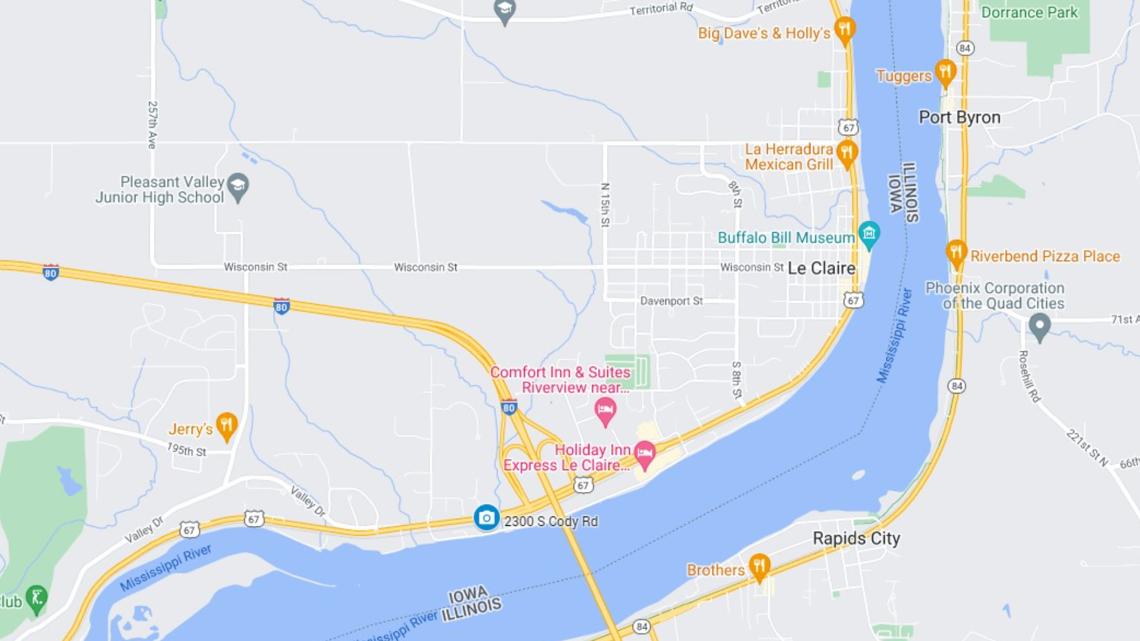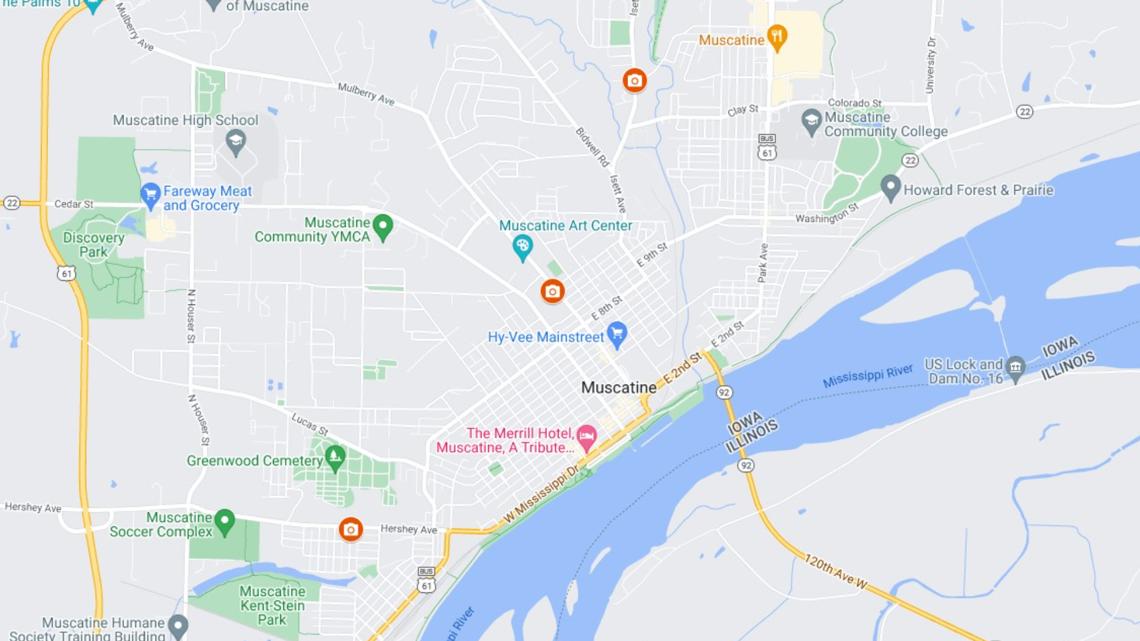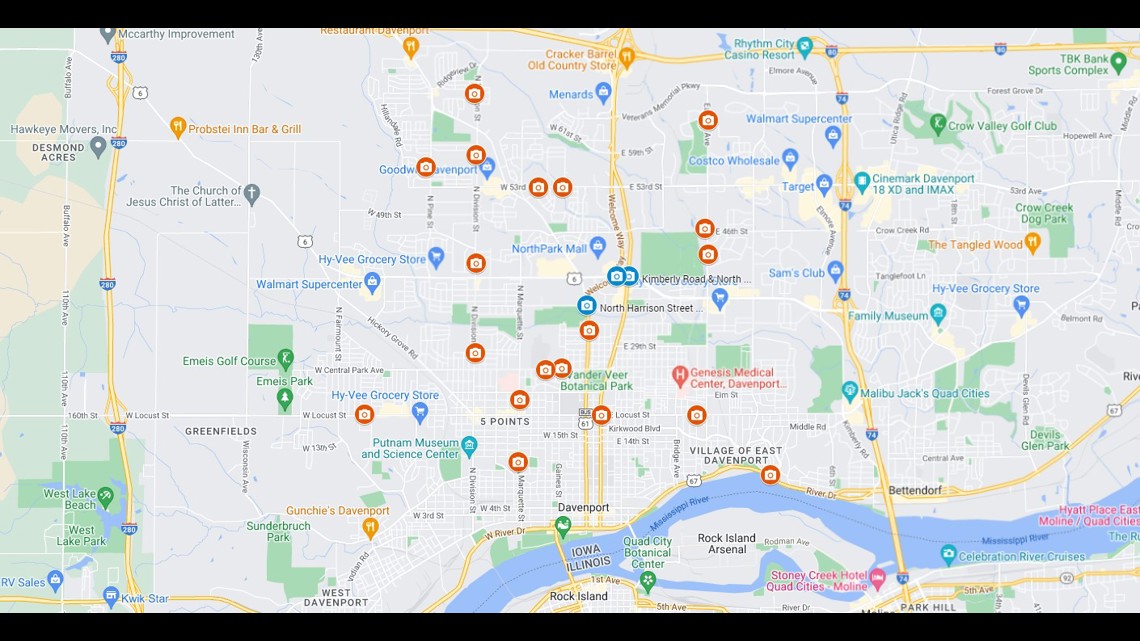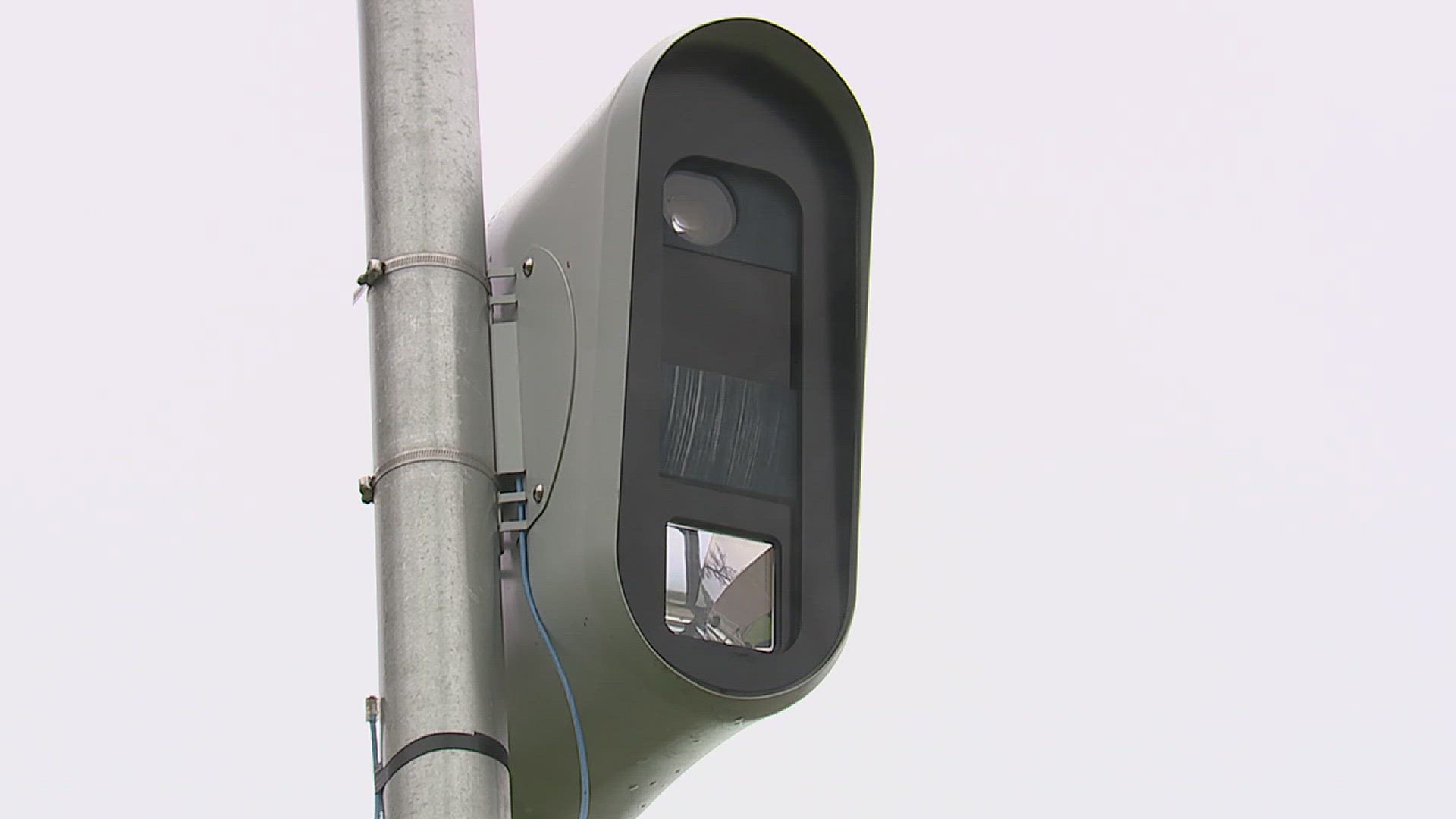LE CLAIRE, Iowa — Following an Iowa DOT ruling, four cities in our area turned off some of their speed cameras Tuesday.
It comes after state lawmakers passed a law this year allowing the DOT to evaluate the purpose of speed cameras across the state. It requires cities obtain a permit from the DOT before using the cameras. The law also states you can't get a ticket from the cameras unless you're driving more than 10 miles per hour over the speed limit.
Out of 348 applications the Iowa DOT received, it denied more than half of the speed camera locations across the state. That includes 128 applications for fixed cameras. Only 11 were approved. For some Iowa cities, that means less money in their pockets.
Cities can appeal the DOT ruling to the department's director, who will make a final decision within 30 days.
You can find a full list of camera applications, whether they were approved or denied, and why they were denied here.
You can find an interactive map of current speed camera locations here.
Here are the cities in our area impacted by this ruling:
LeClaire
LeClaire's two cameras on I-80 were denied because the DOT thinks police can use other enforcement methods. The city can keep its camera at the 2300 block of Cody Road northbound, but not southbound.
According to the Iowa Legislative Services Agency, LeClaire collected more than $1.7 million from its speed cameras in Fiscal Year 2023. That money goes to its general fund.
Police Chief Shane Themas tells News 8 accidents have decreased since cameras were installed in 2021.
"While we respect the DOT’s decision, we have not yet had an opportunity to communicate with anyone from their department to get more information, or a better understanding, of their findings," Themas wrote in a statement. "We hope to speak with representatives from the DOT soon and we look forward to discussing their recommendations for continued traffic safety in these locations."


Muscatine
In Muscatine, all of the city's fixed cameras were denied, including those on Park Avenue and US 61. Mobile camera use at Mulberry, Hershey and Isett Avenues in both directions was approved.
The city collected more than $510,000 in FY2023, used for personnel costs in the police department.
“We are complying with the order while also reviewing the impacts this will have on the City of Muscatine,” Police Chief and Interim City Administrator Anthony Kies wrote in a statement.
“The reason for the denial of these applications was vague and incomplete but the City will comply and not conduct any speed photo enforcement at these locations," Assistant Police Chief Steve Snider wrote in a statement. "These locations will, however, continue to enforce red light violations."
The city said accidents and speed violations have decreased since the cameras were installed in 2011.


Davenport
Davenport had four fixed cameras approved. One is southbound at Harrison Street and 35th Street, one is southbound at Welcome Way and Kimberly Road, and two face either direction at Kimberly Road and Brady Street.
Six fixed cameras across northern Davenport were denied. All but one of 19 mobile units were approved. The city said most of those are in school zones.
In FY2023, Davenport collected more than $1.4 million from cameras. That went to the general fund.
The city said it's still assessing the impact this change will have.
"The Iowa DOT's permitting process required documentation of traffic violations at each location, history and severity of accidents, and other analysis to demonstrate the need for speed restrictions and enforcement. The City of Davenport is committed to utilizing a variety of ways to improve the safety of city streets in compliance with state law," it wrote in a statement.
The Iowa law only controls speed cameras. The city said it will continue to use cameras to enforce red light violations.


Buffalo
Both of Buffalo's fixed cameras were denied. One is eastbound at the 1300 block of East Front Street, the other is westbound at the 100 block of East Front Street. The DOT deemed both unnecessary.
The city collected more than $360,000 in FY2023, used for public safety expenses.

